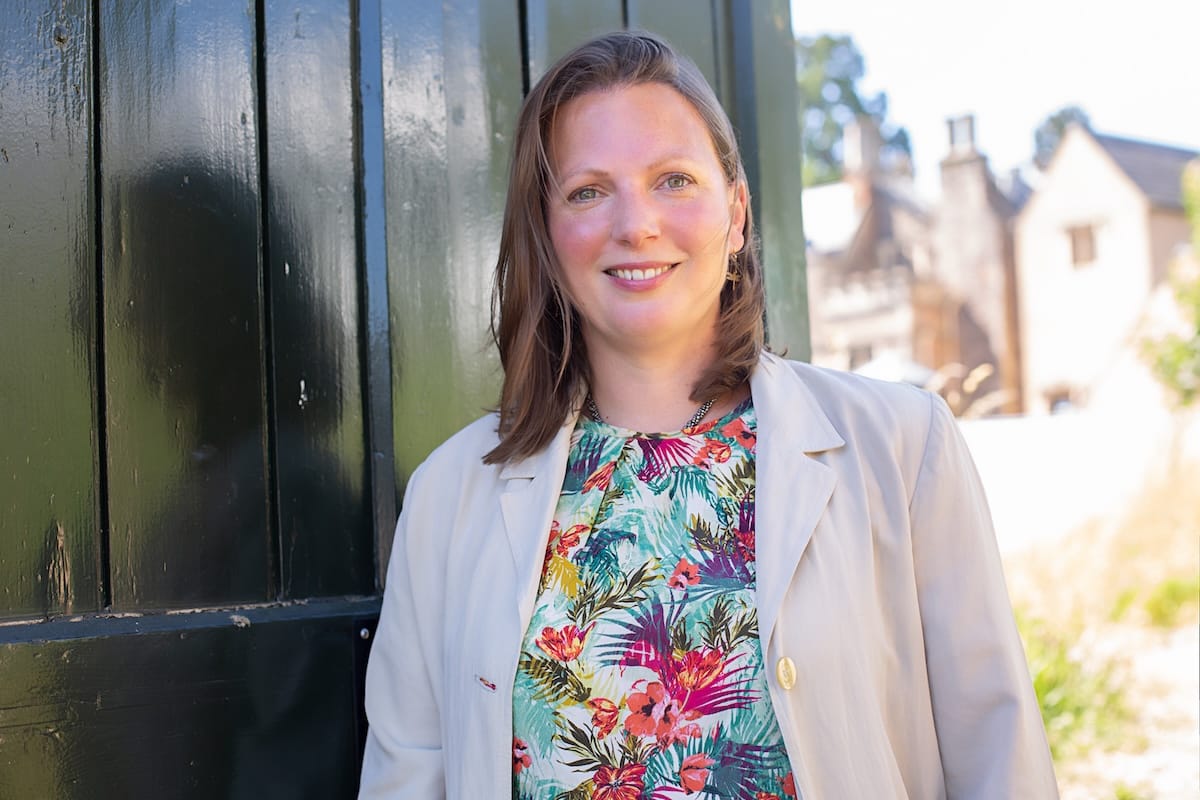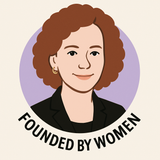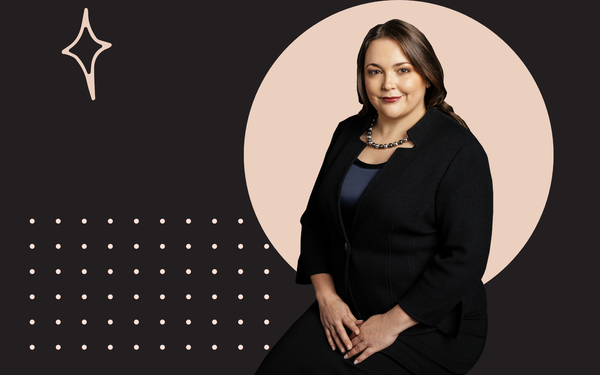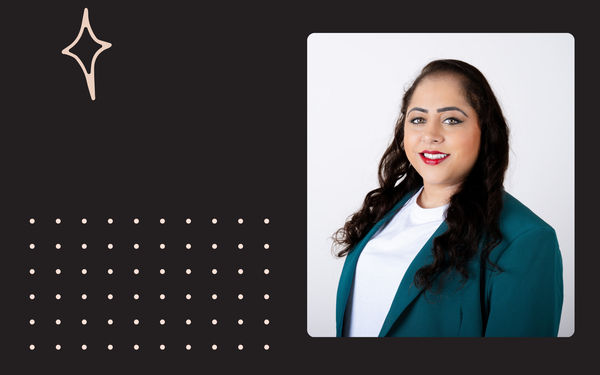Finding Your Way to "Wildly Well": A Conversation with Perimenopause Specialist Lesley Waldron

In the landscape of women's health, few topics are as universally experienced yet individually challenging as perimenopause. It's a transition that affects millions of women, yet many find themselves navigating it with limited support, outdated information, or the persistent belief that they should simply "push through" without prioritizing their own wellbeing.
Enter Lesley Waldron, an Integrative Women's Health Coach who has made it her mission to change this narrative. After her own journey from the edge of burnout while juggling a demanding career and motherhood, Lesley discovered the transformative power of putting self-care first—not as a luxury, but as a necessity for thriving through midlife and beyond.
Now, as a coach specializing in supporting women through perimenopause, Lesley brings a unique blend of professional expertise and personal understanding to her work. Trained as both an Integrative Women's Health Coach and NLP practitioner, she helps women in their 40s, 50s, and beyond embrace what she calls being "wildly well"—a holistic approach to health that goes far beyond simply managing symptoms.
What sets Lesley apart is her deep understanding of the "sandwich years"—that intense period when women often find themselves caring for both growing children and aging parents. As someone currently supporting her own mother with Alzheimer's while raising teenagers, she intimately knows the juggling act that defines midlife for so many women. Yet she's living proof that even in the midst of these demands, it's possible to prioritize your own wellbeing and find joy in the process.
Through her work with individual clients, her role as a Master Coach for the Integrative Women's Health Institute, and her body-positive outdoor fitness classes, Lesley is helping women rewrite the story of aging. Her approach emphasizes connection—to nature, to our natural cycles, and most importantly, to ourselves.
In this conversation, Lesley shares her insights on taking the first steps into perimenopause support, breaking free from the cycle of putting everyone else first, and what it truly means to live "wildly well" during life's most demanding seasons.
1. You describe yourself as a perimenopause specialist and mention helping women through this transition. For women who are just beginning to experience perimenopause symptoms or suspect they might be entering this phase, what are the first three steps you recommend they take to start supporting their health and wellbeing during this significant life change?
- I think the first thing that can be really helpful is to start tracking your menstrual cycle, and any symptoms you might be having to see if they are connected to your hormones, or might have a different cause. You can use apps to do this, but I prefer a simple method of using my journal to do this. I simply write the date, the day of my cycle (your first day of your period is day 1) and how I’m feeling as well as any symptoms. It can take less than a minute but is a great record of how you’re progressing through your perimenopause and a tool to create better self awareness overall. If you don’t have a cycle, or use hormonal contraception then simply taking the first day of the month, or the new moon as your day 1 can be helpful. Over three months you can start to see useful patterns too. Knowing that my mood might be low or temper short can be really helpful when it comes to delegating and rest.
- The second thing I’d suggest is to start to focus on your foundations of wellbeing. Often women get to this phase of life having looked after everyone but themselves. So thinking about moving your body regularly, adding in more vegetables and good quality protein to your meals, getting a good sleep routine in place and managing stress are essential. I usually get my clients to focus on one thing at a time, as often getting one right can have a domino effect on everything else. Better sleep = more energy for exercise = better food choices = better stress regulation = better sleep for example!
- The third is that it’s really helpful to feel informed so that you don’t feel like you’re losing control. There are great podcasts and books out there, but there’s a lot of social media misinformation too. Many of the most popular books are great though. I have also created evidence-based workshops to empower women with information.
2. Your personal story mentions being on the edge of burnout while juggling a senior-level career and motherhood - a situation many of our readers will relate to. You've now spent 10 years helping women build sustainable health habits. What's the most important mindset shift you help women make when they're caught in that cycle of putting everyone else first, and how do you guide them toward creating lasting change rather than falling into yo-yo approaches to health?
This is a big question, as every individual comes with different life circumstances and experiences and road blocks. My own route from burnout and overwhelm was through movement, meditation, and giving myself the mental space to make the decision to leave employment and do something completely different so I could live life more on my own terms. And those same tools have been very helpful in the last 5 years as I have found myself caring for my mother with dementia at the same time as my children entered their teen years!
I take time to get to know my clients so that I can understand what makes them tick, and also to uncover some of the old stories they are telling themselves that hold them back.
But if I had to pick one thing to share here, it’s the awareness that looking after ourselves better doesn’t have to be complex and time consuming. Starting small, with extra hydration, and a few squats while the kettle boils can add up to more energy and strength for other things. And when we feel better, it’s so much easier to keep doing it. Plus, my clients often find that as they look after themselves better, everyone around them feels better too. It’s a win-win.
3. Your approach emphasizes feeling "Wildly Well" through all of life's stages and challenges. This seems to go beyond just physical health to encompass a whole-life wellness approach. Can you share what "Wildly Well" means to you and how women can start incorporating this philosophy into their daily lives, especially when they're feeling overwhelmed or disconnected from their own needs?
In my view for a woman to be wildly well is to be nourished with good food, good conversation, loving relationships, movement, and time outside in nature.
She is also connected with her family, her friends, her community, with people who share her values, with her own inner nature, and her cycles and rhythms - of the day, of the month, of the year
She is strong, because she is resilient and flexible on an emotional and physical level
And she has a sense of purpose and values, in what she does, in who she spends time with, in how she spends her money and other resources, and in how she measures her impact on her world.
Overall there’s a sense of being well-resourced, in all ways.
It’s often when we don’t have those resources that we feel disconnected and overwhelmed. As I said earlier, it’s the one step at a time that works best.
Stopping and asking ourselves in the moment ‘what do I want right now’ and ‘how can I best meet my needs’. And I have to say, the answer is often, that we need more rest, more time to slow down, because when we’re well rested we can make better decisions and choices. Sometimes, even 5 deep breaths can make a big difference.
Are you a woman leader with an inspiring journey to tell? Founded by Women is on a mission to elevate and amplify the voices of women making an impact.
If you're breaking barriers, driving change, or paving the way for others, we’d love to feature your story. Get in touch with us today!
👉 hi@foundedbywomen.org


